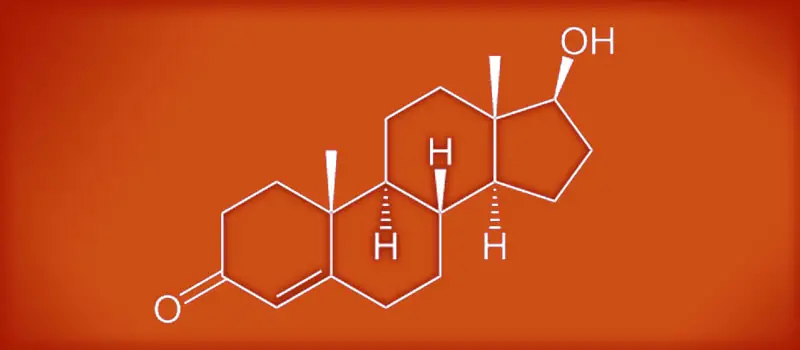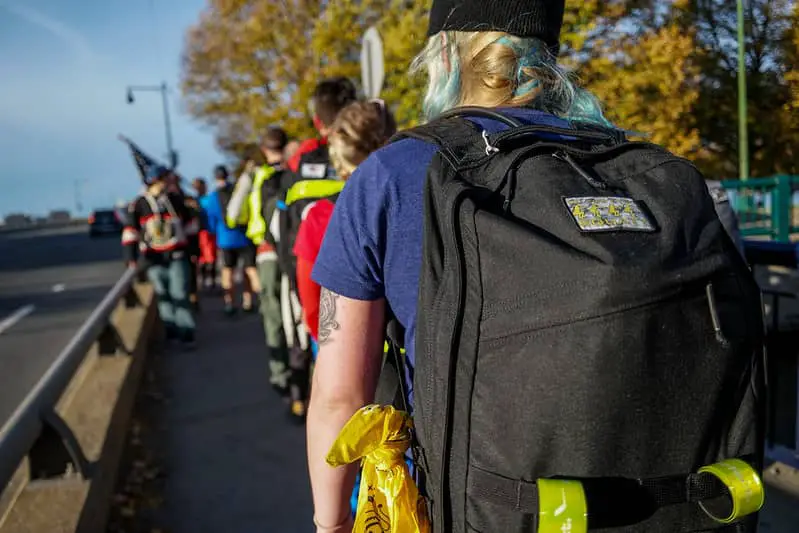
Rucking, a sport gaining popularity in recent years, involves walking or hiking with a loaded backpack, often referred to as a rucksack. This physically demanding activity not only challenges the body but also provides a refreshing outdoor experience. In this article, we delve into the relationship between rucking and testosterone levels and investigating whether rucking can increase testosterone.
Rucking and Testosterone: The Connection
Currently, limited research directly examines the impact of rucking on testosterone levels. However, we can draw insights from studies on resistance training and moderate-intensity endurance exercises.
Study 1: Relationship between Progressive Resistance on growth hormone and testosterone levels and how rucking can be associated with increased testosterone levels
In the study titled “Effects of progressive resistance training on growth hormone and testosterone levels in young and elderly subjects,” researchers investigated the impact of resistance training on growth hormone and testosterone levels in both young and elderly participants.
While this study does not directly explore the effects of rucking on testosterone, we can draw some insights from it to examine the potential connection between rucking and testosterone levels.
The study’s findings demonstrated that progressive resistance training, which involves gradually increasing the intensity of weightlifting exercises, led to significant increases in testosterone levels in both young and elderly subjects.
This is noteworthy because rucking, similar to resistance training, places a substantial load on the muscles and requires individuals to carry a weighted backpack while walking.

Given that resistance training has been shown to promote testosterone production, it is plausible to hypothesize that rucking, with its combination of endurance and resistance aspects, may also have a positive influence on testosterone levels.
Furthermore, the study indicated that growth hormone levels were also affected by progressive resistance training. Growth hormone plays a crucial role in muscle repair and growth, and its release is often stimulated by intense exercise.
As rucking engages multiple muscle groups and provides a challenging full-body workout, it is possible that this activity may also trigger the release of growth hormone, potentially contributing to muscle development and recovery in ruckers.
It is important to acknowledge that the study focused on resistance training, and the specific effects of rucking on testosterone levels have not been directly examined. Rucking involves a unique combination of endurance and resistance elements, and its impact on hormones may differ from traditional resistance training.
Therefore, while we can draw parallels between the study’s findings and the potential effects of rucking on testosterone, further research specifically investigating the hormonal response to rucking is warranted.
Study 2: Self Examined Testosterone level results from a 29-day hike: How rucking could potentially increase testosterone levels
The self-experiment conducted after a 29-day hiking journey on the Colorado Trail offers intriguing insights into the potential connection between rucking and testosterone levels. While not directly exploring rucking, the study’s findings suggest that long-duration, high-intensity exercises, like hiking, may influence testosterone production.
The most striking finding was a remarkable doubling of testosterone levels during the hike. The weight-bearing nature of hiking and the challenges faced during the adventure might have contributed to this surge.
| Free Testosterone (normal 8.7 – 25.1 pg/mL) | Total Testosterone (normal 8.7 – 25.1 pg/mL) | |
|---|---|---|
| Before (Weighted Backpacking/hiking) | 4.4 pg/mL | 463 ng/mL |
| After (Weighted Backpacking/hiking) | 9.9 pg/mL | 992 ng/mL |
Rucking, which involves carrying a loaded backpack while walking or hiking, shares similarities with resistance training – a known stimulator of testosterone production. This suggests that rucking, as a combination of endurance and resistance exercise, may also have a positive impact on testosterone levels in individuals.
Moreover, the participant’s improved fat metabolism after the hike may have implications for hormonal responses in ruckers. As fat metabolism and testosterone levels are often intertwined, the enhanced fat metabolism observed in the experiment could potentially contribute to favorable hormonal adaptations in individuals engaged in rucking.
While the self-experiment provides valuable insights, individual responses to exercise and hormonal fluctuations can vary widely. Further research directly examining the effects of rucking on testosterone levels is needed to better understand its potential benefits for overall health and athletic performance in ruckers. Nonetheless, the study’s findings indicate a promising link between rucking and testosterone, suggesting that this challenging sport may play a role in supporting hormonal health in active individuals.
Final Thoughts
While limited research directly examines the impact of rucking on testosterone levels, related studies and a self-experiment provide intriguing insights. Progressive resistance training and a 29-day hiking journey showed significant increases in testosterone levels, suggesting a potential connection with rucking.
However, individual responses can vary, necessitating further research to understand the full implications.
The possibility of rucking’s positive influence on testosterone production makes it an exciting area for future investigation. Embracing rucking as part of an active lifestyle, alongside proper nutrition and recovery, may offer benefits like enhanced muscle growth and improved well-being.
